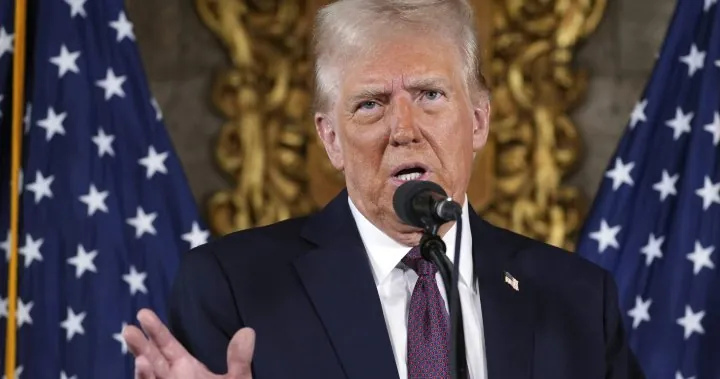
Trudeau Firmly Rejects Trump's Unorthodox Proposal for Canada to Join the U.S. Amid Economic Tensions
2025-01-07
Author: Emma
Trudeau's Firm Rebuttal
In a bold statement during a press conference, Prime Minister Justin Trudeau slammed the idea that Canada would ever merge with the United States, responding directly to comments made by President-elect Donald Trump. Trudeau declared, 'there isn’t a snowball’s chance in hell that Canada would become part of the United States,' as tensions rise following Trump’s suggestion to utilize 'economic force' for such a merger.
Trump's Controversial Proposal
During his recent press conference at his luxurious Mar-a-Lago resort, Trump, weeks away from his presidential inauguration, reiterated audacious plans to reshape the economic landscape of North America. He commented pointedly that 'we don’t need anything' from Canada, dismissing the significance of Canadian exports and even suggesting that the border line between the two nations could be erased for a purportedly better national security framework.
Concerns Over US-Canada Relations
Trudeau’s defense of Canadian sovereignty comes at a critical juncture as he prepares to step down as prime minister after a new Liberal leader is selected. His robust rejection of Trump's comments highlights the growing concern over US-Canada relations, especially as Trump has derisively referred to Trudeau as a 'governor,' undermining his role and status as a national leader.
Economic Implications
The economic implications of Trump's threats can't be understated. He has made waves discussing tariffs that could heavily impact trade relations across the border, igniting fears about the stability of the North American economic partnership. As it stands, Canada and the U.S. share a complex relationship, with over $3.6 billion worth of goods and services exchanged daily, making each other their largest trading partners.
Political Pushback from Canada
Trump’s rhetoric has not only raised eyebrows but has also prompted pushback from Canadian officials beyond Trudeau. Conservative Party Leader Pierre Poilievre asserted emphatically, 'Canada will never be the 51st state,' reaffirming Canada’s independence. Despite this, Trump has also indicated plans to impose tariffs, allegedly as a countermeasure to mitigate issues he perceives with increasing migration and challenges related to drug trafficking from Canada.
Trump's Historical Context with Canada
It’s worth noting that Trump's comments about Canada have surfaced multiple times since he first floated the idea of Canada becoming part of the U.S. in late 2016 during a meeting with Trudeau. Initially brushed off as jokes, these statements have become a curious facet of Trump’s political persona as he navigates his administration's foreign policy.
NATO and Defense Spending
Further complicating matters, during the same conference, Trump discussed NATO, emphasizing that member countries, including Canada, should up their defense budgets significantly. Currently, Canada spends 1.37% of its GDP on defense, far below the 2% target set by NATO. This has led to sustained criticism from U.S. officials, including Trump, who insists that self-sufficiency in defense spending is essential for the integrity of NATO and allied nations.
Future of U.S.-Canada Relations
As the dialogue continues to unfold, the future of U.S.-Canada relations remains a hot topic. Both countries must navigate these challenges carefully to maintain the longstanding partnership that has historically fostered economic cooperation and mutual security. With Trudeau's imminent resignation and Trump’s unpredictable trajectory as president, many are left wondering: what’s next for North America? Stay tuned as this story develops!



 Brasil (PT)
Brasil (PT)
 Canada (EN)
Canada (EN)
 Chile (ES)
Chile (ES)
 Česko (CS)
Česko (CS)
 대한민국 (KO)
대한민국 (KO)
 España (ES)
España (ES)
 France (FR)
France (FR)
 Hong Kong (EN)
Hong Kong (EN)
 Italia (IT)
Italia (IT)
 日本 (JA)
日本 (JA)
 Magyarország (HU)
Magyarország (HU)
 Norge (NO)
Norge (NO)
 Polska (PL)
Polska (PL)
 Schweiz (DE)
Schweiz (DE)
 Singapore (EN)
Singapore (EN)
 Sverige (SV)
Sverige (SV)
 Suomi (FI)
Suomi (FI)
 Türkiye (TR)
Türkiye (TR)
 الإمارات العربية المتحدة (AR)
الإمارات العربية المتحدة (AR)